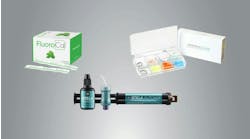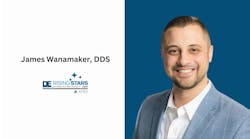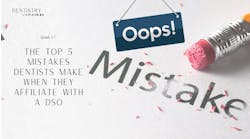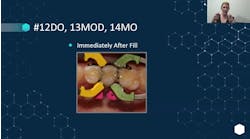Richard H. Nagelberg, DDS
In the past hundred or so years, many discoveries have been made, some of which were quickly accepted and implemented, others not so much. Among the quicker variety was the discovery of the relationship between sunlight and skin cancer; hence the shift from tanning lotion to sunblock.
Richard Nagelberg, DDS, has practiced general dentistry in suburban Philadelphia for more than 30 years. He is a speaker, advisory board member, consultant, and key opinion leader for several dental companies and organizations. He lectures on a variety of topics centered on understanding the impact dental professionals have beyond the oral cavity. Contact him at [email protected].
Others should have been accepted quickly but were not, most notably the health effects of cigarette smoking and the use of smokeless tobacco. Hacking, coughing, wheezing, breathlessness, tooth loss, and the mangling of the inside of the mouth should have been sufficient to alert people that good health and tobacco use were mutually exclusive. Same for nutrition. It took far too long to act on the knowledge that red meat and animal fat are artery cloggers. Same for salivary identification of periodontal pathogens; it has taken too long for widespread implementation.
The general public and health-care professionals, including dental professionals, act on research findings at varying rates influenced by knowledge, education, enthusiasm, bias, agendas, skepticism, and professional procrastination, among many other contributors to decision-making. As is the case with many things we encounter, the outliers among us may be acting too quickly or too slowly or not at all. Early adopters of new research findings may be making significant changes to their delivery of care and patient education before a sufficient number of studies have demonstrated that a particular relationship exists. On the other end of the spectrum are tunnel visionaries; those individuals who operate according to the principle expressed as: "We were always taught," or "This always worked for me," or "I know what my patients want/need." These beliefs potentially negatively affect the level of care practitioners provide for their patients. Digging in one's heels and refusing to act on knowledge expansion denies patients the benefits of new findings. Imagine if some physicians refused to provide the HPV vaccine. Even if they were previously unaware of its existence, they would certainly find out from their peers who went to a physician who offers it to their patients. Dental patients certainly talk to their friends, coworkers, and families about their experiences, especially if the level of care they receive is stellar.
The same is true for the information we provide to our patients. Indicating that successful treatment of periodontal disease will guarantee cardiovascular health is untrue and would be unethical. Failing to provide any information on the relationship between the mouth, the "bugs," and the body is unethical by omission. We have a responsibility to accurately educate our patients and to provide sound home care and lifestyle recommendations. Similarly, we have a responsibility to provide the best evidence-based care to our patients. It is completely ethical, currently, to indicate to our patients that research reveals a relationship between periodontal disease, certain oral bacteria, cardiovascular health, and diabetes. It is not ethical to overstate research findings, nor is it ethical to fail to treat every level of periodontal disease in every patient we encounter.
Everything we do in our professional lives is directed toward giving patients their best chance for health and function. Are we doing our best when we overpromise results based on inadequate research evidence? Are we doing our best when we ignore substantial research findings and fail to bring that knowledge to bear for our patients? Are we doing our best when many of our well-respected, highly credible colleagues and friends are providing a higher level of care than we are because they have kept up with new information? The advances in research and technology do not exist for patients of naysayers and tunnel visionaries, unless they find out on their own, in which case they likely seek care in another setting. Compare the manner in which you practiced 20 or more years ago with the manner in which you practice today. There should be little similarity between the two.
We are clearly doing our best when we stay current with research, read peer-reviewed studies carefully, and modify our approach to patient care when the preponderance of the evidence demonstrates a need to change. Change can be unsettling or exciting. As with everything in life, we choose our attitude.





